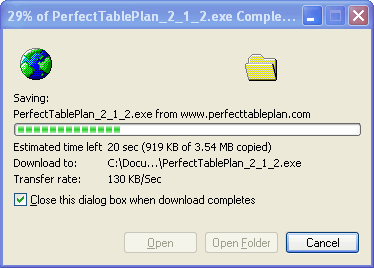 Internet Tax: Time Warner Charging Fees for what They Consider Excessive Downloading Will cable giants Time Warner and Comcast fleece America even more?
Internet Tax: Time Warner Charging Fees for what They Consider Excessive Downloading Will cable giants Time Warner and Comcast fleece America even more?
By Brian Frederick Hollywood Today
BEAUMONT, TX (RUSHPRNEWS) 6/5/08 — Time Warner Cable ISP will now be taxing for downloads, even beyond their pricey monthly bills. Taking advantage of their regional monopoly, the cable company is taxing their customers in Beaumont, Texas with what the company calls, “excessive downloads.†“We think it’s the fairest way to finance the needed investment in the infrastructure.†VP of Advanced Technology, Kevin Leedy told AP.
Most corporate cable companies are awarded communities to provide cable service, this limited choice forces customers to pay whatever fees are presented. Metering of download usage will begin this Thursday in Beaumont, TX. Customers will be offered several flat rate choices between 5 and 40 gigabytes per month and an additional charge of $1 per gigabyte over the flat rate amount. Comcast, the largest cable company in America and a major cable competitor to Time Warner is considering a similar plan.
With a presumed decrease in downloads because of the extra charges, Time Warner will be able to free up cable bandwidth and increase the number of subscribers using their service – more subscribers means more revenue, not necessarily better service. 5% of Time Warner’s customers use half of the bandwidth available.
The program could become the next windfall for cable companies now that DVD downloads have become the future for movie rentals and quickly taking over mail-in DVDs. One DVD download could be between 8 to 14 gigabytes and High Definition (HD) could mean more downloadable gigabytes. Downloading three or four movies a month, not including emails, attachments, ITunes or any other downloadable media and you could owe the cable company more than your budget allows. However, customers will be able to monitor a meter that tells them how much download usage they have consumed each month.
It’s not clear if Time Warner will waive the increase for customers who use Netflix’s unlimited DVD downloads of $8.99 per month through a set-top-box or subscribe to other unlimited download movie providers.
Can Netflix survive localized monopolies like Time Warner and Comcast?
This question is probably being asked by Netflix executives now. One of the fastest growing DVD renters who pioneered the mail-in DVD service has faced severe competition from Blockbuster in recent years. Blockbuster saw the same potential in what Netflix was doing and immediately jumped on the bandwagon. With the timing of Netflix starting a new service of unlimited video downloads and eliminating millions in postal fees.
If Time Warner strong arms Netflix, this could catapult the lawsuit needed to deregulate the regional monopolies cable companies have over their consumers. Although a lawsuit could take years and if Time Warner does not immune Netflix customers from the over usage fee, Netflix’s only option would be to file an injunction until the matter can be resolved in federal court. Such a lawsuit could jeopardize Netflix, who has lost considerable market share from Blockbuster.
AOL, the innovator in mass internet usage opened the internet door to millions of consumers in the early 1990s and could be credited for starting the internet revolution. AOL used to meter the time a person signed on to the internet. If the consumer went over the allotted time they paid for each month, they were charged a fee that was calculated per minute. In 2000 Time Warner and AOL merged to become AOL Time Warner. AOL controlled 55% of the new company. Two years later the company reported a $99 billion loss on the AOL side.
AOL’s market share has been reduced significantly since the merger and the company no longer uses the AOL name with Timer Warner.
What’s left of AOL as a company, no longer charges a meter fee. The meter fee billing AOL was using, unlawfully took advantage of their customers. Consumers were charged an additional 15 seconds for sign in and sign off and rounded up to the next minute. If a consumer used over their allotment and went over by 10:46 of time, AOL was billing up to 12 minutes. Consumers complained, States Attorneys’ filed lawsuits and AOL had to refund millions to consumers.
If the meter fee usage did not work with AOL, will it work for Time Warner?
Can consumers expect to be charged a full gigabyte when they download less then a full gigabyte or will the company round up and bill consumers for downloads they never purchased?
An alternative to customers who have no choice but to use the only cable provider in their neighborhood might be dish technology, such as Direct TV. Direct TV beams a signal from a satellite to the home owner’s dish (receiver) installed at the customer’s home. This does not mean that Direct TV won’t follow Time Warner with metering fees. However, the satellite alternative is available for cable customers.
-END-
RUSH PR NEWS newswire and press release services at www.rushprnews.com
www.annehowardpublicist.com
Content- Legal Responsability
Rush PR News is not legally and/or morally responsible for content of press releases, opinions expressed or fact-checking.
Rush PR News cannot be held legally responsible for material published and distributed through its newswire service or published in its press-room and therefore cannot be sued for published material. Third-party must be contacted directly to dispute content.
Rush PR News is not the contact for material published.



